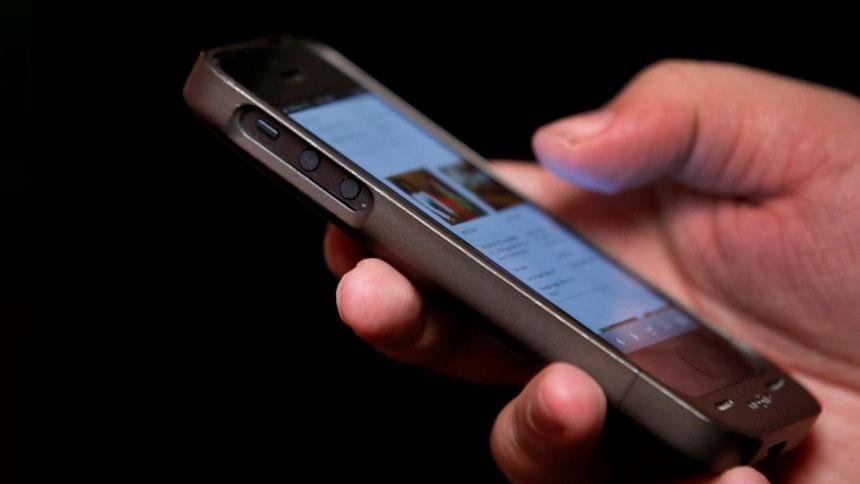DIGITAL MARKETING: A two thousand crore taka market!

Digital media undoubtedly has a clear edge over traditional media in wooing customers at lower costs.
Using its vast user-base and technology, this non-conventional media is able to reach out to target customers instantly and expose them to advertisers. And this advantage has made the media, a by-product of digitalisation, immensely popular all over the world.
Taking into consideration the marketing imperative of reaching a wide customer base at a low cost, let us start the discussion with a news report from last week. Published in the digital section, the report that caught the eye was: three leading private mobile phone operators in Bangladesh have spent a combined $1.04 billion or Tk 8,744.20 crore on social media advertisement in recent years!
It was later acknowledged that the amount was incorrect, with taka figures being mistakenly counted as US dollar figures. Instead of discussing the accuracy of these numbers, let us try to understand, how much is actually spent in this sector? How much money is actually going to the accounts of Facebook-Google-YouTube-Yahoo and other digital media platforms? And how much of that money is actually going through proper banking channels to the accounts of all these platforms?
Over the last two years, there have been many discussions about the market and income of Facebook and Google in Bangladesh. Even the National Board of Revenue has given some instructions to the banks regarding this. These digital media platforms have been asked to open their offices in Dhaka. But the question remains, is that enough? Can this alone ensure that all the payments are being sent or will be sent through banks?
Before digging for answers, let's take a look at those who use digital platforms for communication or advertising. It would be absolutely incorrect to think that only the big companies are advertising on digital platforms. In fact, small companies are spending proportionately more of their marketing budgets on digital marketing. In addition to companies offering digital services, all sorts of small and big companies, even those whose services are limited to local neighbourhoods, are trying to reach out to clients on digital platforms. Instead of asking who is involved in this modern method of marketing, we should rather inquire who isn't.
Starting from finding home tutors for children to haircut services, laundry services, domestic help or information about CNG auto-rickshaw rides, everything is available in the digital world. Those who depend on e-commerce or Facebook for their businesses are also spending hundreds of dollars to boost the news of their products.
No one objects to advertising on digital platforms. Rather, the objection is that none of the digital media platforms including Facebook and Google have offices in Bangladesh. Although these companies are earning hundreds of crores of taka from the country, the government is getting almost nothing from that revenue.
The government gets 15 percent VAT plus another four percent advance tax for every advertisement on local mass-media. It is possible to avoid this taxation when advertising on digital platforms.
Bangladesh has now many digital service businesses that spend all their advertising fund on digital platforms. Among them, there are companies that spend the whole amount overseas, never spending on local digital platforms. Some ride-sharing and e-commerce companies are sending their payments to Facebook or Google or other digital platforms from overseas, even though their whole advertising campaign is being conducted in Bangladesh, targeting specific age groups or region.
There are now over fifty thousand accounts of local digital businesses, e-commerce and F-commerce in the country. They spend between five and one hundred dollars per day on advertising. Based on this estimate, the total expenditure per day would go over one crore taka. According to experts, this would amount to more than Tk 100 crore per month.
Talking to different people involved in this sector and doing research, it appears that digital markets earn around Tk 2,000 crore per year from the digital advertising sector in Bangladesh. This market is growing at the same rate as that of Facebook. But confusion arises when one sees that only Tk 135 crore went to Google and Facebook through local banking channels in the last five years, even though the process of sending money through the banks started in 2014.
According to the banks, money was remitted from the country to only one more account, other than Facebook and Google. Yahoo and Emo were not on that remittance list. Yet, at least two mobile operators, Robi and Banglalink, mentioned the names of Yahoo and Emo on their accounts, which they provided about their digital marketing expenditure. So what has happened? It is thus evident that the money was not sent through proper banking channels.
This poses another question. The banks are saying that they have remitted Tk 135 crore. However, the combined expenditure by Grameenphone, Robi and Banglalink in this sector is Tk 435 crore. One wonders how the remaining Tk 300 crore was remitted!
Some software companies now get a card from the government that allows them to spend a maximum of 12,000 US dollars for expanding their product market abroad. Many are making payments through this card. Others are getting their payments made from outside the country. Payments are also made from within the country using foreign debit or credit cards. As a result, the government is not getting its due.
So what is the way out of this situation? If not all, at least 90 percent of these transactions has to be brought under proper banking channels. In that case, our main source of power is the 3.5 crore consumers in the digital space. We have to attract the presence of Google-Facebook in Bangladesh using this huge customer base.
Muhammad Zahidul Islam is a senior reporter for The Daily Star.

 For all latest news, follow The Daily Star's Google News channel.
For all latest news, follow The Daily Star's Google News channel. 



Comments